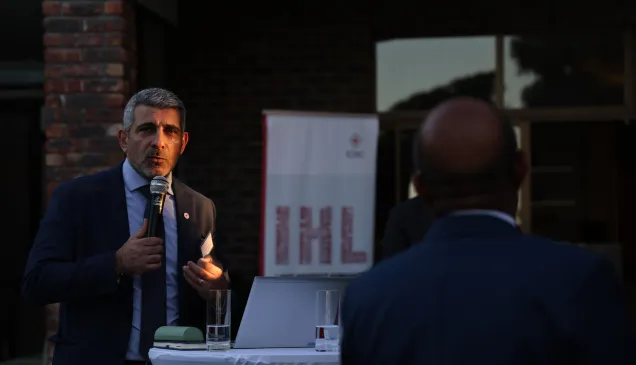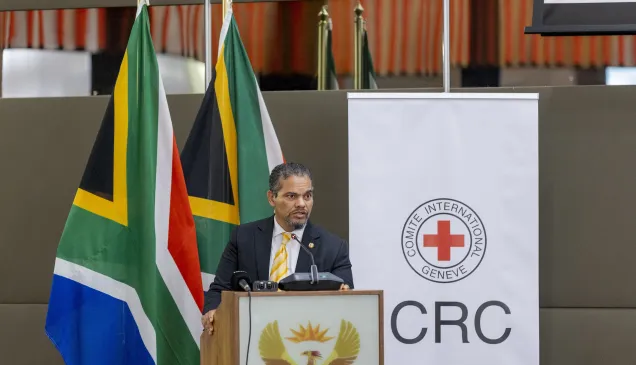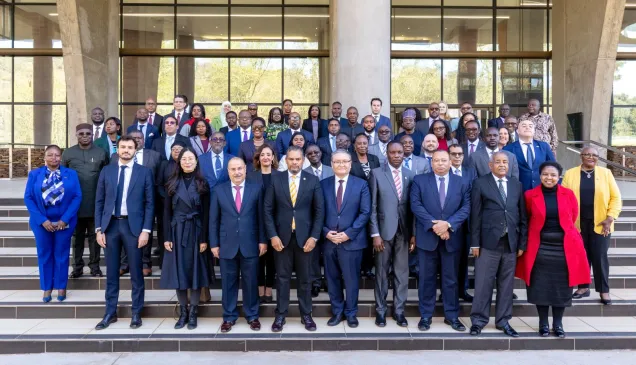Zimbabwe: Separated by distance, connected by wifi
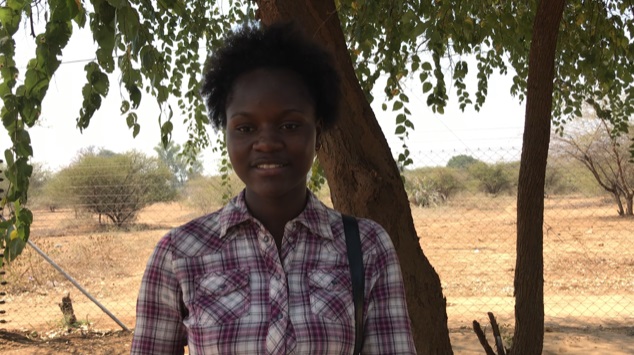
Ketsia at Tongogara Refugee Camp in eastern Zimbabwe.
Ketsia Kahozi Bizvii is desperate to find her two brothers and sister – Kevin, Jonathan and Asnath. The 17-year-old has not heard from them since November 2017 after fleeing her home in South Kivu in Democratic Republic of the Congo (DRC). She arrived at Tongogara Refugee Camp in Chipinge, eastern Zimbabwe, without any family at the end of 2017.
“I don’t have any [family] phone numbers. It [the wifi] helps me to search for family left in Congo,” she says.
Ketsia has been accessing Facebook using wifi at the Zimbabwe Red Cross Society (ZRCS) office in the camp to communicate with her aunts and cousins in DRC. They give her updates on the search for her siblings. The teenager says the conversations help lift her spirits as her relatives constantly remind her to keep strong.
“I can talk to the people I knew before. I meet new people in the camp but they didn’t know me from before. It’s better to talk to those who I knew, it gives me faith that one day I'll be in front of my brothers and sister.”
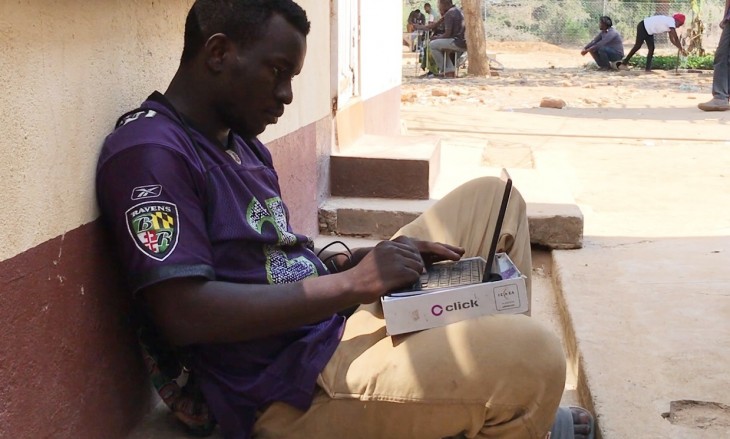
Caleb at Tongogara Refugee Camp in eastern Zimbabwe.
Caleb Baleza Byabushi finds a spot of shade in an alley under the hot afternoon sun, typing away on his laptop like many other 25 year olds would. Unlike the average millennial, Caleb is not online to chat with friends, share a funny meme, watch videos on YouTube or scroll through Instagram. Like Ketsia, he is also searching for his family from whom he was separated when he fled his home in South Kivu in the DRC in 2016 because of security issues.
Waiting to assist Caleb, Ketsia and other refugees daily to access the free wifi are Red Cross volunteers, Daniel Masanka and Remmyson Mwape - affectionately known as Mr Daniel and Remmy respectively. They work together with Restoring Family Links field officer Lilian Musimwa at the International Committee of the Red Cross (ICRC) to provide this service to the community of refugees.
“When people flee conflict they are separated from their relatives and some have no way to communicate with those they left behind. We introduced a free wifi service in the camp to allow refugees without access to phones or other devices to use the internet for 30 minutes, once a month,” says Lilian. Some of those we assist come as far as three kilometres to be able to access this service as it’s the only way they have to know that their loved ones are safe,” she continues.
Since the project started in January 2018, close to 3,000 connections have been made using the service.
Tongogara Refugee Camp is home to 12,000 refugees. This includes families, unaccompanied minors and separated children. The ICRC and ZRCS work to assist families separated by armed conflict and violence to restore or maintain contact with their loved ones through the provision of the free wifi as well as a telephone service.

